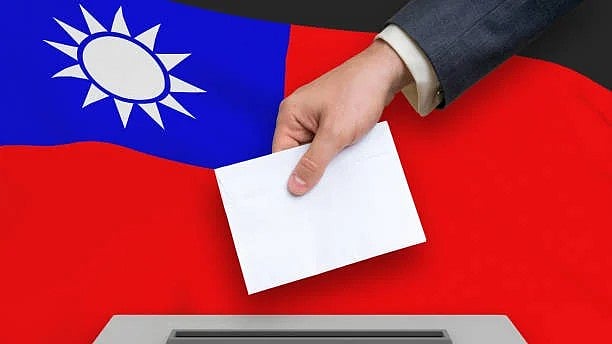
Representative image of Taiwan vote
Credit: iStock photo
Taiwan: Voters in Taiwan face a critical decision Saturday: whether to throw out 24 opposition lawmakers they elected just last year, in an extraordinary recall campaign that could put more power in the president’s hands but add to tensions with Beijing.
The vote threatens to flip the legislative balance in favor of President Lai Ching-te, who wants Taiwan to forge a future separate from China, against an opposition that favors closer ties with Beijing.
China, which claims the island as its territory and has been wary of Lai, could step up pressure on Taiwan if voters oust a large number of the lawmakers and give Lai more room to pursue his agenda. Here is what is at stake and how the recall will work:
A Triumph or a Travesty of Democracy?
No national-level legislatures worldwide have faced a recall effort as extensive as Taiwan’s, said Yanina Welp, a research fellow at the Graduate Institute in Geneva who studies recall initiatives.
Taiwan is one of the few democracies that allows voters to throw out elected representatives through such petitions, but previous campaigns were smaller and rarely successful.
This weekend, two dozen Nationalist Party lawmakers face recall votes; an additional seven will next month.
To supporters, the “great recall” campaign reflects the vigor of Taiwan’s democracy, which emerged in the 1980s after decades of authoritarian rule under the Nationalist Party. Although a successful campaign would help Lai, many activists promoting the recalls say they are acting independently.
“We’re building a decentralized grassroots movement,” said Molly Kuo, an organizer of one of the recall efforts in New Taipei. “We’re witnessing a deepening of democracy.”
Opponents say the campaign is an abuse of a process that should be used sparingly.
“This recall is a fight driven by hatred,” Lai Shyh-bao, a Nationalist legislator in Taipei who faces a recall vote, said in an interview. Targeted lawmakers, he said, were being “totally demonized.”
To set off a recall vote, campaigners must gather enough signatures in two rounds of petitions. Rival petitions led by the Nationalist Party to recall lawmakers from Lai’s Democratic Progressive Party failed to reach that threshold.
Under Taiwanese election law, for a recall vote to pass, more votes must be cast in favor than against, and at least a quarter of all registered voters must vote to remove the lawmaker.
If a lawmaker is recalled, fresh elections must be held within three months, and the recalled lawmaker is barred from running.
Big Stakes for Taiwan’s President
Recall of a significant number of opposition lawmakers would make it much easier for Lai to push his agenda, which includes shifting Taiwan’s economy further from China. He could also appoint his preferred judges to Taiwan’s high court.
Lai won the presidency in January last year, but the Nationalist Party took the most legislative seats: 52 of 113. With backing from the Taiwan People’s Party, a smaller opposition group, Nationalist lawmakers have been able to block Lai’s initiatives and advance their own, including cuts to his budget and efforts to expand the legislature’s powers.
If 12 or more Nationalist lawmakers are recalled, Lai’s party would gain a temporary majority in the legislature, at least until special elections are held. Longer-term control depends on which side wins those seats in the coming months.
Widespread rejection of the recalls could hint at tepid support for Lai’s party ahead of local and presidential elections, experts say. Surveys suggest that a sizable number of Taiwanese disapprove of mass recalls.
The campaign has set off fierce debates, but it has unfolded mostly peacefully — with the exception of some altercations — and within the bounds of Taiwan’s democratic institutions, a point some experts see as important in itself.
“There was no constitutional crisis,” said Nathan F. Batto, a researcher at the Institute of Political Science of Academia Sinica, a Taiwanese research institute. “They channeled all that energy and angst and passion into an institutional mechanism.”
China Watches Warily
China may intensify its pressure on Lai by holding large-scale military exercises near the island in the coming weeks or months, to show its anger over the recall campaign, his speeches and his travels abroad.
Chinese officials, not known for upholding democratic norms in their own country, have denounced the recall campaign as an attempt to suppress opposition voices.
Chinese officials seem to particularly distrust Lai, who in the past has described himself as a “pragmatic worker” for Taiwan’s independence. His Democratic Progressive Party was founded in opposition to the idea that Taiwan is historically part of China and should pursue unification between the sides.
More recently, Lai has made speeches calling for Taiwan’s “national unity,” arguing that Taiwan is a full-fledged country.
In a move that might worsen tensions, Lai is expected to visit at least one of Taiwan’s diplomatic allies in Latin America in August, with possible stopovers in the United States. That would anger Beijing, which has been working to isolate Taiwan and opposes any exchanges with the United States.